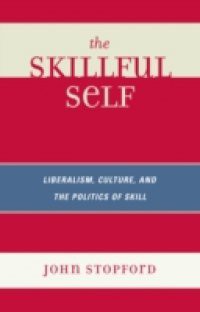The Skillful Self: Liberalism, Culture, and the Politics of Skill presents a political liberal theory of cultural participation and the goals of cultural policy in contemporary pluralistic democracies. The ideal of cultural participation, which many regard as central to the self-conception of modern constitutional democracies, is often subject to the distorting influences of state perfectionism, paternalism, consumerism, and ideology. These distortions and the problems they raise are intensified by the forces of social, cultural, and economic globalization. Using the tools of contemporary liberal theory,The Skillful Self develops an approach to the politics of culture that focuses on the concept of skill and its place in a liberal conception of the self. Support for this approach is derived from the work of Nussbaum and Sen, who make a conception of human capability basic to their views of public policy and the design of political institutions. But the politics of skill modifies the capability approach by characterizing the central human functional capabilities as functions of the skillful self. The final chapters of the book describe the competences of the skillful self, elaborating a new typology of skills and explaining why basic institutions are obliged to promote them. To make the role of skill in the central capabilities explicit in this way is not to invoke the perfectionist ideal of a culture of skill, but rather to focus on the structural role of skill in a nonperfectionist conception of truly human functioning, and on the social conditions of individual capability viewed as a function of skill.

